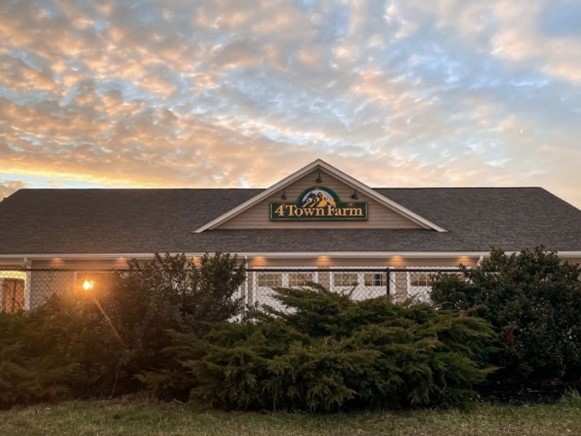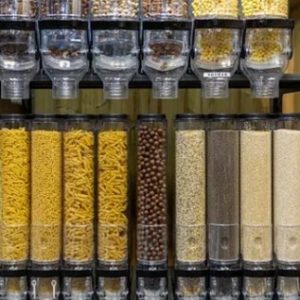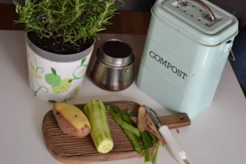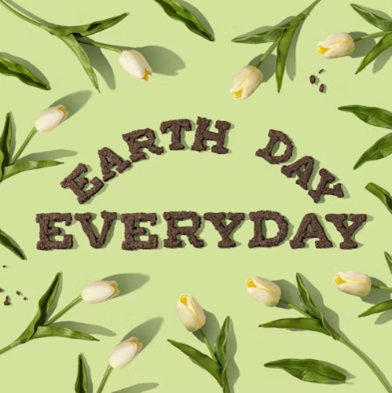by Rev. Racquel Ray
Associate Minister of Congregational Life
In the days of Noah, God promised, “I will never again curse the ground because of humankind…as long as the earth endures, seedtime and harvest, cold and heat, summer and winter, day and night, shall not cease.” (Genesis 8:21-22). However, changes are happening to the earth which do threaten human flourishing. Ice caps are melting, oceans are warming, wildlife is changing, and natural disasters all effect how we live. What are your thoughts on climate change and humanity’s impact on the climate? How does climate impact humanity?
Earth Day is April 22nd. Originally celebrated in 1970, Earth Day is now an annual event celebrating, observing, and motivating environmental justice. By extension, some have dedicated April as Earth Month or Creation Care Month. How we observe Creation Care Month can be a reflection of our personal theology around stewardship of the planet. For some, creation stewardship draws them to Climate Change rallies on the statehouse lawn. For some, creation stewardship means shopping small and local or using refillable beverage containers. What can you do to be a good creation care steward?
 When my oldest children were small, our family had a goal of reducing our carbon footprint. We lived in a walkable city with a local food co-op, weekly farmer’s market, and several parks and museums with outdoor green space. The power bill was offset with clean energy generated through hydro-electric credits. We could shop locally and bring reusable totes and refillable containers to the co-op. We could use environmentally safe soap and detergent and add ‘grey’ water (from bath, dishes, or laundry) to the arid soil to keep the garden watered and pest free. We challenged the kids to conservation contests by seeing who could use the least water in a shower – closing the drain and measuring how many inches of water were left in the tub.
When my oldest children were small, our family had a goal of reducing our carbon footprint. We lived in a walkable city with a local food co-op, weekly farmer’s market, and several parks and museums with outdoor green space. The power bill was offset with clean energy generated through hydro-electric credits. We could shop locally and bring reusable totes and refillable containers to the co-op. We could use environmentally safe soap and detergent and add ‘grey’ water (from bath, dishes, or laundry) to the arid soil to keep the garden watered and pest free. We challenged the kids to conservation contests by seeing who could use the least water in a shower – closing the drain and measuring how many inches of water were left in the tub.
Barrington has many ‘green’ attributes. We have the East Bay Bike Path, the Barrington Farm School, Land Conservation Trust green spaces, the town beach, and several parks and playgrounds all open to the public. The local food and farm to table food systems are growing. Recycling and composting are becoming more common. We’re adding sidewalks and small businesses. And our local farms and markets provide a decent variety of local, in season produce and locally made products. What are some of your favorite local ‘green’ spots?
 Our family has settled and put down roots, figuratively and actually, by creating Ray Farm. Our yard is a wholistic suburban yard farm which provides year-round organically grown food for our family. We are a National Wildlife Federation certified habitat. We grow blueberries, blackberries, black raspberries, golden raspberries, cherries, pears, apples, kale, carrots, asparagus, rhubarb, cucumbers, green beans, tomatoes, potatoes, peppers, and herbs. We added solar panels in 2023 and upgraded to electric heat as well. We have not been able to eliminate our carbon footprint – but we sure have reduced it! How do you reduce your carbon footprint?
Our family has settled and put down roots, figuratively and actually, by creating Ray Farm. Our yard is a wholistic suburban yard farm which provides year-round organically grown food for our family. We are a National Wildlife Federation certified habitat. We grow blueberries, blackberries, black raspberries, golden raspberries, cherries, pears, apples, kale, carrots, asparagus, rhubarb, cucumbers, green beans, tomatoes, potatoes, peppers, and herbs. We added solar panels in 2023 and upgraded to electric heat as well. We have not been able to eliminate our carbon footprint – but we sure have reduced it! How do you reduce your carbon footprint?
Whether you plow under your lawn to grow food, recycle your discarded clothes and fabrics in the collection shed in the church parking lot, add solar power to your home, turn off the water while brushing your teeth, upgrade to efficient appliances, or simply refill your reusable water bottle you can make a difference. Each of us are created to ‘tend and to till’ this earth – as God instructed humanity through Adam and Eve. What’s your ‘green’ practice?
This month, chose one thing you can do to make a difference. Will you drive less? Turn off lights in empty rooms? Hang your laundry to dry outside? Have Meatless Meal Monday? Shop locally? Support a local farm? Learn about composting? Plant a garden? Reduce the amount of plastic you use? Plant a tree?
 Come celebrate Creation Care Sunday on April 21st and bring your own mug (or use one of ours) for coffee hour. Also, bring your own Creation Care ideas to share during the worship service and during the fellowship time afterwards at coffee (which is always fair trade and equal exchange). Let’s grow green together!
Come celebrate Creation Care Sunday on April 21st and bring your own mug (or use one of ours) for coffee hour. Also, bring your own Creation Care ideas to share during the worship service and during the fellowship time afterwards at coffee (which is always fair trade and equal exchange). Let’s grow green together!
- Barrington Land Conservation Trust, Clean-up Allin’s Cove Conservation Area. Sunday, April 21, from 1 to 3 pm to help us clean up litter as well as debris that has washed ashore over the winter. All ages are welcome with parental supervision. https://www.blct.org/earth-day-eve-cleanup-at-allins-cove/
- Eastern Rhode Island Conservation District Earth Month events include seedling sales, plogging (picking up litter while jogging), and rain barrel workshops https://www.easternriconservation.org/earthmonth
- Four Town Farm opening mid-April https://4townfarm.com/
- Plant City X opening soon in Barrington Center https://plantcityx.com/
- Prickly Ed’s Cactus Patch Native Plant Emporium, Reopening “Earth Week” April 2024! https://pricklyeds.com/



